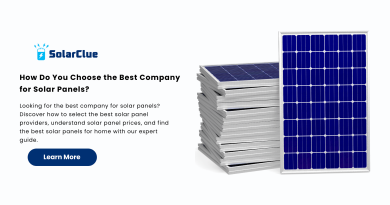Solar Power System For Home 2
Table of Contents With an increasing global awareness of the need to preserve the environment and reduce greenhouse gas emissions, many homeowners are turning to renewable energy sources. Among the most accessible and efficient of these is solar power. The deployment of solar power systems for homes has been gaining traction over the past decade, as the technology becomes more affordable and efficient. This article provides a deep examination of solar power systems for homes, detailing how they work, their myriad benefits, and important considerations before making the switch. The fundamental operation of a solar power system may seem complex, but it boils down to a relatively simple process. At its core, a solar power system converts sunlight into electricity, which then powers electrical loads in a house. This is accomplished by a network of solar panels, typically installed on rooftops, which capture sunlight and convert it into direct current (DC) electricity. An inverter then converts this DC power into alternating current (AC) power, the standard used by most household appliances and electrical systems. Any excess energy generated by the system is either stored in batteries for later use or fed back into the grid, often earning the homeowner credits from their utility company. Using a solar power system for your home comes with wide-ranging benefits that span from financial to environmental impacts. Firstly, the significant decrease in energy consumption from the grid translates to lower electricity bills. In fact, with the right system, energy consumption could be offset entirely. Additionally, many governments offer incentives or subsidies for homes that integrate solar power systems, making it an even more attractive option. As it relates to the environment, installing a solar power system can significantly reduce a home’s carbon footprint. It’s a clean, green energy source that emits no greenhouse gases. With every kilowatt-hour of solar electricity used, you are directly contributing to the global effort to combat climate change and ensure a sustainable future. Furthermore, unlike other forms of energy, solar power is a renewable resource, meaning it is not subject to depletion. As long as the sun rises, we have access to solar energy. Despite the evident benefits of solar power systems, there are a few key points to ponder prior to installation. The geographical location and the direction of the rooftop can significantly impact system output: areas with more hours of sunshine could generate more electricity. Another major consideration is the initial cost of installation. While the return on investment over time is considerable, the initial outlay can be substantial. Furthermore, technology selection, including types of panels and inverters, is another important factor to be taken into account. A trusted solar installer can guide through these considerations and ensure the appropriate system is selected. Looking onward, the prevalence of solar power systems in homes is only set to grow. Innovations within the solar power industry continue to increase its efficiency and reduce its cost, making it an ever more attractive prospect. Recent advancements boast solar installations that blend into rooftop shingles and tiles, offering a solution for homeowners concerned about aesthetics. With an increasing focus on green energy sources, the future of solar home systems certainly shines brightly. In conclusion, the use of solar power systems for homes offers a compelling approach to energy sustainability. It not only provides considerable savings on electricity bills but also contributes positively to environmental preservation. While it requires an initial investment, the long-term benefits far outweigh the costs. Furthermore, with continuous advancements in the field, we can expect solar power systems to become even more efficient and affordable, making it an ever more appealing option with a promising future. If you are considering a shift towards renewable energy, a home solar power system could be the perfect way to add value to your home while lessening your environmental footprint.Introduction to Solar Power Systems for Home
Understanding How Solar Power Systems Work
The Benefits of a Solar Power System for Your Home
Considerations Before Installing a Solar Power System
The Future of Solar Power Systems for Homes
Conclusion



